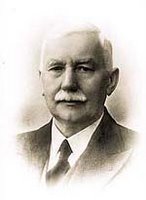A Quote by Henry David Thoreau
Knowledge does not come to us in details, but in flashes of light from heaven.
Related Quotes
How unutterably sweet is the knowledge that our Heavenly Father knows us completely. No talebearer can inform on us; no enemy can make an accusation stick; no forgotten skeleton can come tumbling out of some hidden closet to abash us and expose out past; no unsuspected weakness in our characters can come to light to turn God away from us, since He knew us utterly before we knew him and called us to Himself in the full knowledge of everything that was against us.
The happiness of life consists, like the day, not in single flashes (of light), but in one continuous mild serenity. The most beautiful period of the heart's existence is in this calm equable light, even although it be only moonshine or twilight. Now the mind alone can obtain for us this heavenly cheerfulness and peace.
Christianity, if it is to triumph over pantheism, must absorb it. To our pusillanimous eyes Jesus would have borne the marks of a hateful pantheism, for he confirmed the Biblical phrase "ye are gods," and so would St. Paul, who tells us that we are of "the race of God." Our century wants a new theology - that is to say, a more profound explanation of the nature of Christ and of the light which it flashes upon heaven and upon humanity.
The endless cycle of idea and action, Endless invention, endless experiment, Brings knowledge of motion, but not of stillness; Knowledge of speech, but not of silence; Knowledge of words, and ignorance of the Word. All our knowledge brings us nearer to our ignorance, All our ignorance brings us nearer to death, But nearness to death no nearer to God. Where is the Life we have lost in living? Where is the wisdom we have lost in knowledge? Where is the knowledge we have lost in information? The cycles of Heaven in twenty centuries Bring us farther from God and nearer to the Dust.
A man should learn to detect and watch that gleam of light which flashes across his mind from within, more than the lustre of the firmament of bards and sages. Yet he dismisses without notice his thought, because it is his. In every work of genius we recognize our own rejected thoughts: they come back to us with a certain alienated majesty.


































